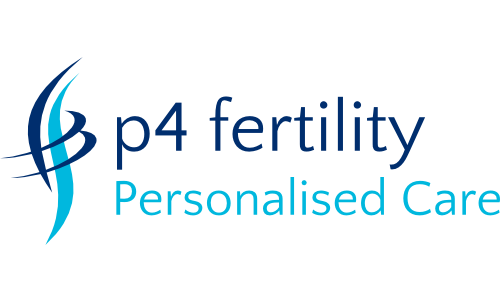top of page
P4 Fertility provides a variety of fertility preservation services tailored to your unique needs. Whether you're considering storing eggs or ovaries for the future, or if you're a man looking to preserve sperm, our team is here to guide you. For couples opting for embryo freezing to postpone pregnancy or exploring personalized solutions in committed relationships, we offer advanced technology, including ovarian tissue freezing. The process of freezing eggs, embryos, or sperm is more straightforward and stress-free than you might imagine. Book an appointment to discuss your options with our dedicated team.
Fertility Preservation: Explore Personalised Solutions at P4 Fertility

Egg Freezing

Egg freezing is a treatment that allows women to freeze their eggs in order to preserve fertility. The process involves stimulating your ovaries to grow and to aid maturation of your eggs which are then surgical removed in a egg collection procedure. These eggs will then frozen for your future use.
Women consider egg freezing for delaying pregnancy without affecting chances of success in future, women with cancer, women with ovarian cysts, endometriomas or any genetic issues that can result in loosing eggs faster than average.
What is egg freezing?
Please choose your nearest clinic to see costs of egg freezing & egg or sperm storage
Book an appointment for further details
Frequently asked questions
If you're not ready for a family: Not everyone feels ready for motherhood at the same time. You might want to preserve your fertility because you haven't met the right partner, you don't feel financially or emotionally ready, or you have other life plans you want to pursue.
If you're having cancer treatment: If you're having certain types of cancer treatment, including chemotherapy or radiotherapy, you might want to consider freezing your eggs, sperm or embryos. This is because some of the drugs used in cancer treatment can cause infertility, especially in high doses.
If you're a transgender person: If you're a male transitioning to a female or a female transitioning to a male, you may want to preserve your fertility before you start hormone therapy or have reconstructive surgery. Both treatments can lead to the partial or total loss of your fertility.
Egg freezing is a treatment that allows women to freeze their eggs in order to preserve fertility. The process involves stimulating your ovaries to grow and to aid maturation of your eggs which are then surgical removed in a egg collection procedure. These eggs will then frozen for your future use.
Women consider egg freezing for delaying pregnancy without affecting chances of success in future, women with cancer, women with ovarian cysts, endometriomas or any genetic issues that can result in loosing eggs faster than average.
There are many reasons for women opting for egg freezing including medical and social reasons. Some of the main reasons why women decide to cryopreserve their eggs include:
• The age at which women are having children is increasing.
• Some women want to wait for the right partner and so want to preserve their ‘younger’ eggs for potential use in the future to have their own genetic child.
• The quantity and quality of eggs decline with age. Women's fertility potential begins to fall in their early 30s and then more significantly after 35yrs. If you are not currently in a position to start a family or you do not think you will be for several years, then freezing your eggs before your mid-30s can provide some protection against the decline in fertility potential seen after 35yrs of age.
• Life threatening medical conditions – treatment for these may leave the ovaries inactive therefore eliminating the change of the woman being able to produce her own eggs.
• Non-life threatening medical conditions – these may reduce the fertile life span or prevent her from trying to get pregnant whilst treatment is ongoing.
• Family history of early menopause.
• In couples in whom there is personal or religious belief which prevents more than a defined number of eggs to be fertilised (during IVF treatment), the remaining eggs that have not been inseminated could then be frozen for future use.
Women who leave it late to embrace motherhood are often criticised for gambling with their fertility and risking their own and their baby's health. But now a leading academic says many women may delay getting pregnant. Professor Elizabeth Gregory says older mothers are financially secure and happy to put their careers on hold while they bring up baby and are more likely than younger first-time mothers to be in stable relationships. They also live longer. The average age of British women giving birth is stable at 29, but the numbers of women choosing to start families in their late thirties and early forties have risen sharply. In 2006 in England and Wales, more than 22,000 women over 40 had babies, of whom nearly 5,500 were giving birth for the first time. (The Guardian)
The most significant determinant of egg freezing success is the patient's age at which egg freezing takes place. Data from research suggests that the highest discriminating factor for success was freezing eggs before 36 years of age and ideally in their 20s or early 30s. In the UK in 2016, only 32% of the 1173 egg-freezing cycles were in Women aged 35 or below. Storage of ten oocytes gave a cumulative live birth rate of 42.8% in women 35 years and under (compared to 25.2% in women 36 years and over). Women who electively froze their eggs at 35yrs or below were able to achieve a cumulative live birth rate of greater than 90%, although this required using 24 eggs.
An ultrasound scan and blood tests (semen analysis of your partner if you chose embryo freezing) are requested before treatment. There is a theoretical risk of viral (HIV, Hepatitis B & C) cross-contamination between samples that are stored in liquid nitrogen. You (and your partner if you go for embryo freezing) will be screened for HIV and Hepatitis B & C.
The first cycle provides us with information for planning the second cycle. You do not need to undergo all tests for the second cycle. You do not need to pay additional fees for freezing.
Currently, women using their frozen eggs in treatment have a success rate of 18% (30% with frozen donor eggs), which offers no guarantee of achieving a successful pregnancy and birth with one round of egg freezing. 30% success rate if egg freezing is performed under 35 years of age. We have an ethical responsibility to be clear that egg freezing below the age of 35 offers women their best chance of creating their much longed-for family.
The treatment schedule is patient specific and is dependent on the outcome of preliminary tests. For emergency patients the work-up time will be shorter before eggs are collected.
The egg freezing process is very similar to IVF treatment, except that the eggs are not inseminated with sperm, they are frozen immediately. Provided all the work-up is complete and all criteria has been met, it takes approximately two weeks from the start of your cycle to the point of egg collection and egg freezing.
The preliminary tests are required to assess suitability for egg freezing and are part of the work-up for egg freezing. These tests include the following:
• 3D pelvic transvaginal ultrasound scan – This helps us to get a clearer picture of your womb, ovaries and pelvis. The quality of your endometrium is also checked. This helps to calculate the dosage of medication you may require for stimulation.
• Anti Mullerian hormone blood test (AMH) – This helps us to measure your ovarian reserve i.e. determines the expected number of eggs.
• We also required infection screening tests which include HIV, hepatitis B and Hepatitis C. Please note we do not offer egg-freezing cycles to any women who test positive for any of these infections.
Not all frozen eggs will survive the thawing process. On average, around 85% of eggs survive the thawing process. We use the vitrification technique. This is a rapid freezing method whereby the egg is placed into a highly concentrated solution of cryoprotectant and quickly immersed into liquid nitrogen at temperature of -1960C using patient specific labelled plasticware designed for this purpose. The development of oocyte vitrification techniques has significantly improved oocyte survival compared to traditional freeze/thaw techniques (81-89% vs 46-67%).
Studies have shown no difference in clinical pregnancy, miscarriage, or live birth rates between fresh and frozen oocyte cycles. The success rates of egg freezing significantly depend on the number of eggs collected and the age at which they were frozen. One study showed that women who froze their eggs before 36yrs of age needed 12 eggs to achieve one live birth, while women between 36-39yrs required 30 eggs to achieve one live birth.
The number of eggs collected per cycle is critical for overall success of the egg freezing treatment. It is also dependent on a number of individual factors including the quality of the eggs frozen. Women may require multiple cycles of ovarian stimulation and egg collection to freeze a sufficient number of eggs.
Researchers developed a mathematical model to predict the probability of live birth based on female age and the number of cryopreserved oocytes to aid patient counselling. According to the model, women at 34, 37 or 42 years would need to cryopreserve 10, 20, and 61 oocytes, respectively, to obtain a 75% likelihood of having at least one live birth.
Step 1 Consultation – With our consultant. During the consultation your consultant will give you individualise advise and guidance based on your medical history, assess your ovarian reserve and your family planning goals that will help you decide whether egg freezing is right for you.
Step 2 Ultrasound scan and Anti Mullerian Hormone (AMH) test – To assess your egg reserve to give you a personalized prediction of the number of eggs expected per cycle, protocol and drug cost.
Step 3 Follow-up Consultation – With your consultant to confirm the decision, plan the treatment and discuss any questions you may have following your tests. Once you confirm that you have decided to go ahead with egg freezing, we will advise you to complete the regulatory paperwork and consent process.
Step 4 Treatment Start Date – We start your treatment from day 1 of your menstrual cycle. The nursing team will advise you on when, how and which injections to take based on the planned protocol.
Step 5 Monitoring – During stimulation the nursing team will monitor your follicle growth in your ovaries (follicles are sacs in the ovary where eggs grow) via frequent scans. The length of the monitoring phase is dependent on how many follicles there are and how fast they are growing. Once your follicles are at an appropriate size, we advise you to take a trigger injection to cause final egg maturation and your egg collection will be booked.
Step 5 Egg collection – An egg collection is a short procedure which lasts around 30 minutes. Egg collection can be performed under general anaesthetic or sedation depending on the patient's preference (administered by a Consultant Anaesthetist). Eggs are surgically removed using transvaginal ultrasound guidance. Tubes containing the fluid aspirated from each follicle are passed to the embryologists who identifies each egg and collects them in a labelled Petri dish and stores them in an incubator. Each egg is then assessed for suitability for freezing (immature or post-mature eggs will not be frozen). All suitable eggs are then prepared for freezing using vitrification methods.
Under current regulations from the Human Fertilisation and Embryology Authority (HFEA), eggs can remain in storage up to a maximum of ten years although in some circumstances this period of time can be extended up to 55 years. It should be understood that once the consented period of storage is reached, the eggs have to be thawed in accordance with current legislation.
Step 1 – You need to book an appointment with a consultant to plan embryo creation and transfer. General medical health and risks of pregnancy, chance of success and assessment of welfare of the child, consents and explanation of the frozen embryo transfer process will be explained.
Step 2 – If you have a partner at this stage and want to use his sperm, we will test the sperm and infection screening tests will be conducted. If you decide to use donor sperm, we will arrange counselling and an appointment with the donor sperm coordinator. The consultant will assess future pregnancy risks and plan with obstetricians if required clinically.
Step 3 – The nursing team will arrange scans and advise you on medications based on the protocol to prepare your lining of the womb for embryo transfer.
Step 4 – The embryologist will thaw your eggs when the womb's lining is ready. They will perform an ICSI procedure, which means injecting the sperm into the eggs to create embryos. You may use your partner's sperm or donor sperm to create an embryo. Please remember that the cost of all future procedures is not included in the egg-freezing process.
Step 5 – The team will inform you about the number of eggs that have survived, the number of fertilized eggs, the quality of embryos created and the embryo transfer date.
Step 6 – The consultant will perform the embryo transfer. You will continue with advised medications until the pregnancy test date, typically two weeks from embryo transfer.
There are several key factors to consider before deciding to freeze your eggs. The age at which you freeze your eggs is crucial to your chances of eventually having a baby. Ovarian reserve and egg quality decline with age. Women with low ovarian reserve do not respond as well to hormone stimulation and frequently end up with a lower number of eggs to freeze. We advise patients to consider freezing eggs before age 35 and preferably in the 20s or early 30s to ensure a good number of eggs are collected. Depending on your age, you may require multiple cycles of hormone stimulation and egg collection to achieve a sufficient number of eggs to give you a realistic chance of success.
When considering the costs of freezing your eggs, it is essential that you also think about the future costs of any IVF treatment that you will later require in order to use your frozen eggs. The total costs can also vary depending on the number of egg-freezing attempts you require to achieve a fair number of eggs and the number of embryo transfer attempts you need to achieve a pregnancy. You also have to pay a yearly storage fee. On average, the total cost (for one cycle of egg collection, medication, and storage fees for one year) is approximately £4000 in Birmingham clinic. Please speak with our team to get update costs and exact quote for your treatment.
The main risk is development of ovarian hyperstimulation syndrome (OHSS). Whilst symptoms are usually only mild in most patients (bloating, nausea, pain, shortness of breath), some people can become quite unwell and require hospital admission. We use Buserelin triggers in high-risk women to significantly reduced the risk of OHSS.
Risks associated with egg collection include infection needing antibiotics, bleeding (although the serious bleeding risk is very low, 1-2 per 100), damage to other organs (1 to 2 per 1000 cases), empty follicles, failure to achieve desired quantity or quality of eggs, low or no response to stimulation, eggs don’t survive the thaw process and eggs fail to fertilize in the future.
There are no known adverse effects on children born from frozen eggs; there are no long-term follow-up studies due to the recent nature of the egg-freezing technique. However, the research on frozen embryos did not show any impact and data so far does not show any adverse effects.
Egg quality and ovarian reserve fall with increasing maternal age; therefore, we believe that if you want to freeze the eggs, you should do so before you are 35 or as soon as you can.
Women should consider the risks in pregnancy with advanced maternal age. There is an increased risk of miscarriage, pregnancy-induced hypertension, and gestational diabetes and an obstetric plan should be in place at an advanced age.
If you have frozen eggs that you don't want to use; you have several different options:
1. Donate them to research: Research on eggs, sperm and embryos is invaluable in helping scientists to understand the causes of infertility and develop new treatments.
2. Donate them to training: Trainee embryologists need eggs to practice different techniques, such as fertilizing them with sperm in the lab.
3. Donate them to someone else: You may be eligible to donate your eggs.
4. Discard them: Some people prefer to discard their eggs. Eggs no longer needed are removed from the freezer and allowed to perish naturally in warmer temperatures or water.
The first step in your journey is to book in with your consultant. You can book your consultation by following the link below:
www.bir.p4fertility.co.uk/book-online (http://www.bir.p4fertility.co.uk/book-online)
bottom of page



